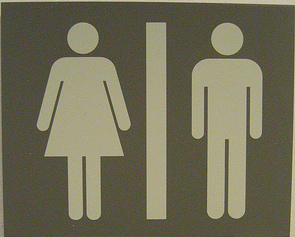Mind your language

I have to admit to regularly using the word ‘guys’ to refer to my fellow human beings whether male or female. To me it has always seemed gender-neutral and I’ve used it with no conscious gender connotations. But no more. Two events happened in quick succession on Monday.
At the end of my ‘advanced facilitation’ workshop at the Peace News Camp one of the female participants got up to leave and said something along the lines of “thanks guys” to the rest of the group of both women and men. Then she corrected herself: “no, not guys”. A conversation followed in which one person recounted something he’d been told by a friend who’s recently undergone some gender-related training (in the public sector I think, but the details elude me). According to that training ‘guys’ is now officially deemed gender-neutral.
Fast forward a couple of hours and I bumped into two female friends as I left the Camp, greeting them with “how are you guys?. The response was swift and firm: “we are not guys”. One apology and some small talk later they kindly sought to downplay the situation by calling themselves “embittered feminists”. But why should they downplay it? They’ve struggled (and continue to struggle) for the right to define themselves a they see fit without reference to men or masculine language. ‘Guys’ clearly isn’t gender-neutral for them, no matter how many times it’s been laundered in an attempt to sanitise it.
All this reminded me of a recent post I wrote, and articles I’ve read on the margins and the mainstream. My friends were, in this context (and many others), the margins. If we’re to move beyond oppression, whether gender or any other type, it seems imperative that the mainstream doesn’t talk for the margins. Let the margins talk for themselves. And if they tell me ‘guys’ is inappropriate then it is. So, as of now, you have my permission to pull me up (nicely!) on using it in anything but all-male company.
As facilitators aspiring to full participation this is not simply political correctness. It’s pragmatism – if our language is a barrier to access, then we need to change it or our processes will stumble and even fail. And let’s face it, English is such a rich and diverse language that there are plenty of other ways to say “how are you guys?”.

July 30, 2010 @ 11:56 am
And other perspectives include –
Using ‘they’ in the singular, as in “What’s their name?”, if you don’t know whether they are female or male;
How is everybody? See you later folks. How are you all? Thanks everyone! Hello, people.
Imho “guys” means men. Along with geezers, chaps, fellows, dudes, fellas and blokes.
I think you hit the nail on the head, when you pointed out that the meaning of what you say, is the response you get. After all, how would the audience feel if you said, “Thanks girls”?
August 25, 2010 @ 4:04 pm
Thought it time I delved into the commenting sections!
I completely agree with you here, but it’s amazing (and a little depressing) how invisibile privilage can be to those individuals or groups in the ‘mainstream’ who posses it (in include myself when it comes to race, class, sexual preference etc here) and how frequently we find ourselves speaking for the margins.
On the use of ‘guys’ I do find it inappropriate (although take offence depending on who’s using it i guess) and always try and use ‘folks’. I actually thought i’d picked that up or observed it from Matthew!
On a wider note, if we accept that how language is used and/or how we converse can be an expression of power and its imablances (across all types of oppression) within groups of people, that’s a big challenge for us as facilitators or for those who work regularly with groups. Like group dynamics, it can be a difficult one to encourage individuals and groups to spend time examining.
August 26, 2010 @ 10:19 am
Thanks Katie.
‘Folks’ is something I use a lot of the time, but as this instance demonstrates obviously not all of the time! It goes to show that we don’t get it right all of the time and that we have to embrace that journey of constant reflection on the inevitable mistakes we make along the way.
I often find myself saying to ‘trainee’ facilitators that making mistakes (and then learning from them!) is the most important facilitation technique of all!